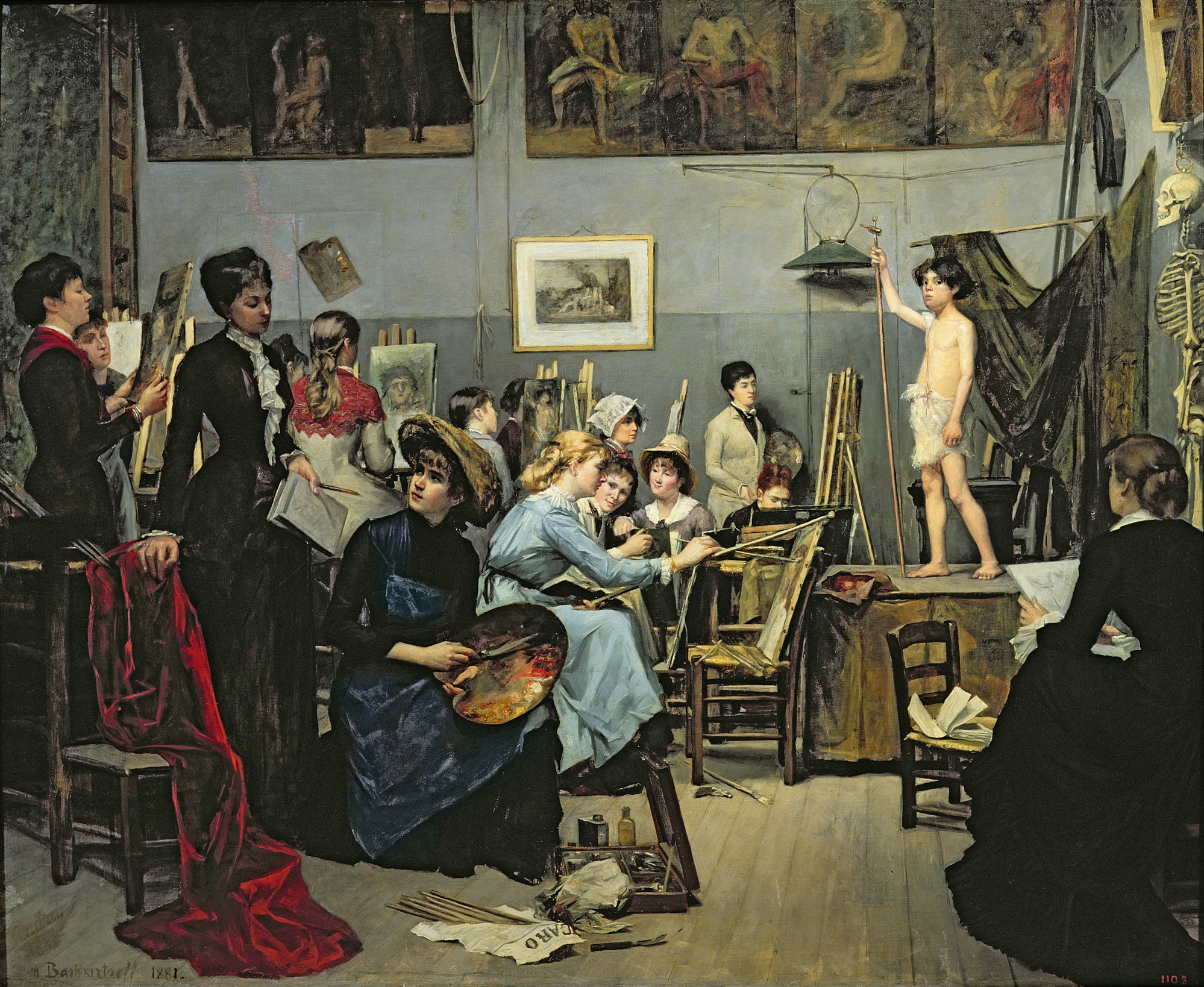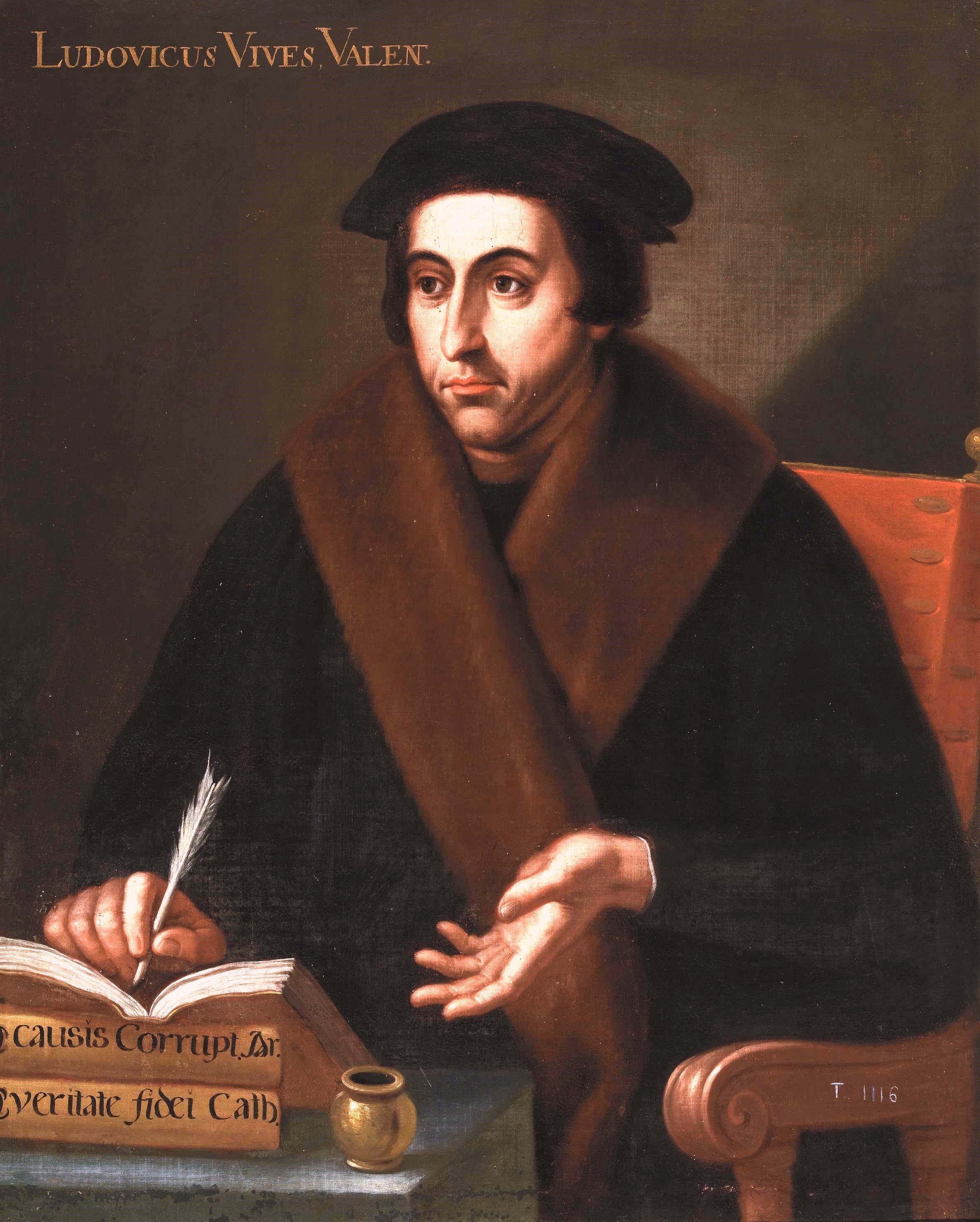|
Academia De Bellas Artes De Santa Bárbara
The Academia de Bellas Artes de Santa Bárbara was an art school located in Valencia, Spain, Valencia, Spain, founded in 1753 by decree of King Ferdinand VI of Spain. The school which was located in the University of Valencia building was named after Barbara of Portugal. In consequence of underfunding, the institution was disbanded in 1759. The current Real Academia de Bellas Artes de San Carlos de Valencia is deemed to be the follow-on institution of the Academia de Bellas Artes de Santa Bárbara.Real Academia de Bellas Artes de San Carlos de ValenciaHistoria: ''La Academia de Bellas Artes de San Carlos'' References {{DEFAULTSORT:Academia de Bellas Artes de Santa Barbara 1753 establishments in Spain 1759 disestablishments in Spain Educational institutions established in 1753 Educational institutions disestablished in the 1750s Art schools in Spain Schools in Valencia Ferdinand VI Universities and colleges established in the 18th century ... [...More Info...] [...Related Items...] OR: [Wikipedia] [Google] [Baidu] |
Art School
An art school is an educational institution with a primary focus on practice and related theory in the visual arts and design. This includes fine art – especially illustration, painting, contemporary art, sculpture, and graphic design. They may be independent or operate within a larger institution, such as a university. Some may be associated with an art museum. Art schools can offer elementary, secondary, post-secondary, undergraduate or graduate programs, and can also offer a broad-based range of programs (such as the liberal arts and sciences). In the West there have been six major periods of art school curricula,Houghton, Nicholas (Feb. 2016)"Six into One: The Contradictory Art School Curriculum and How It Came About" ''International Journal of Art & Design Education''. vol. 35, no. 1. pp. 107–120. and each one has had its own hand in developing modern institutions worldwide throughout all levels of education. Art schools also teach a variety of non-academic skills ... [...More Info...] [...Related Items...] OR: [Wikipedia] [Google] [Baidu] |
Valencia, Spain
Valencia ( , ), formally València (), is the capital of the Province of Valencia, province and Autonomous communities of Spain, autonomous community of Valencian Community, the same name in Spain. It is located on the banks of the Turia (river), Turia, on the east coast of the Iberian Peninsula on the Mediterranean Sea. It is the Ranked lists of Spanish municipalities, third-most populated municipality in the country, with 825,948 inhabitants. The urban area of Valencia has 1.5 million people while the metropolitan region has 2.5 million. Valencia was founded as a Roman Republic, Roman colony in 138 BC as '. As an autonomous city in late antiquity, its militarization followed the onset of the threat posed by the Spania, Byzantine presence to the South, together with effective integration to the Visigothic Kingdom of Toledo in the late 6th century. Al-Andalus, Islamic rule and acculturation ensued in the 8th century, together with the introduction of new irrigation syst ... [...More Info...] [...Related Items...] OR: [Wikipedia] [Google] [Baidu] |
Spain
Spain, or the Kingdom of Spain, is a country in Southern Europe, Southern and Western Europe with territories in North Africa. Featuring the Punta de Tarifa, southernmost point of continental Europe, it is the largest country in Southern Europe and the fourth-most populous European Union member state. Spanning across the majority of the Iberian Peninsula, its territory also includes the Canary Islands, in the Eastern Atlantic Ocean, the Balearic Islands, in the Western Mediterranean Sea, and the Autonomous communities of Spain#Autonomous cities, autonomous cities of Ceuta and Melilla, in mainland Africa. Peninsular Spain is bordered to the north by France, Andorra, and the Bay of Biscay; to the east and south by the Mediterranean Sea and Gibraltar; and to the west by Portugal and the Atlantic Ocean. Spain's capital and List of largest cities in Spain, largest city is Madrid, and other major List of metropolitan areas in Spain, urban areas include Barcelona, Valencia, Seville, ... [...More Info...] [...Related Items...] OR: [Wikipedia] [Google] [Baidu] |
Decree
A decree is a law, legal proclamation, usually issued by a head of state, judge, monarch, royal figure, or other relevant Authority, authorities, according to certain procedures. These procedures are usually defined by the constitution, Legislative Law, Legislative laws, or customary laws of a government. Belgium In Belgium, a decree is a law of a Communities, regions and language areas in Belgium, community or regional parliament, e.g. the Flemish Parliament. Catholic Church A decree (Ecclesiastical Latin, Latin: ''decretum'') in the usage of the canon law (Catholic Church), canon law of the Catholic Church has various meanings. Any papal bull, papal brief, brief, or motu proprio is a decree inasmuch as these documents are legislative acts of the pope. In this sense, the term is quite ancient. The Roman Congregations were formerly empowered to issue decrees in matters which come under their particular jurisdiction but were forbidden from continuing to do so under Pope Benedic ... [...More Info...] [...Related Items...] OR: [Wikipedia] [Google] [Baidu] |
Ferdinand VI Of Spain
Ferdinand VI (; 23 September 1713 – 10 August 1759), called the Learned (''el Prudente'') and the Just (''el Justo''), was King of Spain from 9 July 1746 until his death in 1759. He was the third ruler of the Spanish Bourbon dynasty. He was the son of King Philip V and Queen Maria Luisa. Ferdinand succeeded his father upon the latter's death in 1746. His reign proved peaceful, as he avoided involving Spain in any European conflicts. Moderate changes to Spain were initiated under the king, including reforms of taxation, advance commerce, and the Spanish navy, as well as a ban on freemasonry. However, the last years of Ferdinand's reign were marked by mental instability, much like his direct predecessor Philip V. Upon his death, Ferdinand was succeeded by his younger half-brother, Charles III. Early life Born at the Royal Alcázar of Madrid, Ferdinand was the last of the four sons that Philip V had in his first marriage to Maria Luisa of Savoy. The young ''infante'' endured ... [...More Info...] [...Related Items...] OR: [Wikipedia] [Google] [Baidu] |
University Of Valencia
The University of Valencia ( ), shortened to UV, is a public research university in Valencia, Spain. It is one of the oldest universities in Spain, and the oldest in the Valencian Community. It is regarded as one of Spain's leading academic institutions. The university was founded in 1499, and currently has around 55,000 students. Most of the courses are taught in Spanish, however their plan is to increase the number of courses available in Valencian and English as well. It is located in the Mediterranean Spanish baseline, in the city of Valencia which is the capital and most populous city of the autonomous community of Valencia and the third largest city in Spain, with a population of 829,705 in 2014. One of its campuses is located in the metropolitan area of Valencia, in the municipalities of Burjassot and Paterna. The current chancellor is María Vicenta Mestre Escrivá. History At the request of James I the Conqueror, Pope Innocent IV in 1246 authorized (by a Bull) ... [...More Info...] [...Related Items...] OR: [Wikipedia] [Google] [Baidu] |
Barbara Of Portugal
Barbara may refer to: People * Barbara (given name) * Barbara (painter) (1915–2002), pseudonym of Olga Biglieri, Italian futurist painter * Barbara (singer) (1930–1997), French singer * Barbara Popović (born 2000), also known mononymously as Barbara, Macedonian singer * Bárbara (footballer) (born 1988), Brazilian footballer Film and television * ''Barbara'' (1961 film), a West German film * ''Bárbara'' (film), a 1980 Argentine film * ''Barbara'' (1997 film), a Danish film directed by Nils Malmros, based on Jacobsen's novel * ''Barbara'' (2012 film), a German film * ''Barbara'' (2017 film), a French film * ''Barbara'' (TV series), a British sitcom Places * Barbara (Paris Métro), a metro station in Montrouge and Bagneux, France * Barbaria (region), or al-Barbara, an ancient region in Northeast Africa * Barbara, Arkansas, U.S. * Barbara, Gaza, a former Palestinian village near Gaza * Barbara, Marche, a town in Italy * Berbara (other), or al-Barbara, L ... [...More Info...] [...Related Items...] OR: [Wikipedia] [Google] [Baidu] |
Real Academia De Bellas Artes De San Carlos De Valencia
The Real Academia de Bellas Artes de San Carlos de Valencia (Spanish language, Spanish for ''Saint Charles Royal Academy of Fine Arts of Valencia'') has been a Spain, Spanish Art school in Valencia, Spain, Valencia since 1768. History The institution is deemed to be the follow-on institution of the Academia de Bellas Artes de Santa Bárbara, which was closed in 1759. The institution was founded under the name ''Real Academia de las Tres Nobles Artes de San Carlos'' (''Royal Academy of the three Noble Arts of Saint Charles'') by decret of Charles III of Spain, Charles III from February 14, 1768, according to the Real Academia de Bellas Artes de San Fernando in Madrid. The so-called "three noble arts" were painting, sculpture and architecture. Until 1910 the academic training was rather practical, before the course offer was increased by essential theoretic and practical knowledge. By decret from July 24, 1913, the museum for painting and sculpture was subordinated to the ac ... [...More Info...] [...Related Items...] OR: [Wikipedia] [Google] [Baidu] |
1753 Establishments In Spain
Events January–March * January 3 – King Binnya Dala of the Hanthawaddy Kingdom orders the burning of Ava, the former capital of the Kingdom of Burma. * January 29 – After a month's absence, Elizabeth Canning returns to her mother's home in London and claims that she was abducted; the following criminal trial causes an uproar. * February 17 – The concept of electrical telegraphy is first published in the form of a letter to ''Scots' Magazine'' from a writer who identifies himself only as "C.M.". Titled "An Expeditious Method of Conveying Intelligence", C.M. suggests that static electricity (generated by 1753 from "frictional machines") could send electric signals across wires to a receiver. Rather than the dot and dash system later used by Samuel F.B. Morse, C.M. proposes that "a set of wires equal in number to the letters of the alphabet, be extended horizontally between two given places" and that on the receiving side, "Let a ball be suspended ... [...More Info...] [...Related Items...] OR: [Wikipedia] [Google] [Baidu] |
1759 Disestablishments In Spain
In Great Britain, this year was known as the ''Annus Mirabilis'', because of British victories in the Seven Years' War. Events January–March * January 6 – George Washington marries Martha Dandridge Custis. * January 11 – In Philadelphia, the first American life insurance company is incorporated. * January 13 – Távora affair: The Távora family is executed, following accusations of the attempted regicide of Joseph I of Portugal. * January 15 ** The British Museum opens at Montagu House in London after six years of development. **Voltaire's satire ''Candide'' is published simultaneously in five countries. * January 27 – Battle of Río Bueno: Spanish forces, led by Juan Antonio Garretón, defeat indigenous Huilliches of southern Chile. * February 12 – Ali II ibn Hussein becomes the new Ruler of Tunisia upon the death of his brother, Muhammad I ar-Rashid. Ali reigns for 23 years until his death in 1782. * February 16 – The Com ... [...More Info...] [...Related Items...] OR: [Wikipedia] [Google] [Baidu] |





